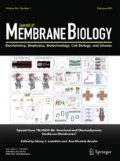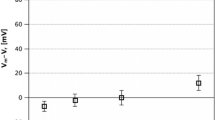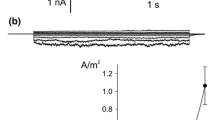Acetylcholine has long been suggested to play a role in controlling physiological processes in plants, but no mechanism has been shown for its action. We show here that a chloride channel in the tonoplast (vacuolar membrane) of Chara corallina responds to acetylcholine. The channel has a conductance of 45 pS. The effect of acetylcholine is enhanced by nicotine, with the open probability increasing from 0.05 in the presence of 4 mM acetylcholine to 0.3 in the presence of 4 mM acetylcholine + 6 mM nicotine. Some effects of acetylcholine were seen at concentrations as low as 20 mM, with a maximum effect between 1 and 10 mM. In the intact cell, acetylcholine prolongs the depolarized phase of the action potential. We propose that this acetylcholine-gated channel has evolved separately from the mammalian acetylcholine-gated channel, and suggest that this represents a third form of acetylcholine signal transduction, after the nicotinic and muscarinic pathways in animal systems.
Similar content being viewed by others
Author information
Authors and Affiliations
Rights and permissions
About this article
Cite this article
Gong, XQ., Bisson, M. Acetylcholine-activated Cl? Channel in the Chara Tonoplast . J. Membrane Biol. 188, 107–113 (2002). https://doi.org/10.1007/s00232-001-0177-z
Received:
Issue Date:
DOI: https://doi.org/10.1007/s00232-001-0177-z




